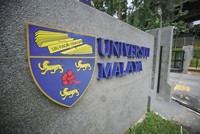Advertisement
Grab your lab coat. Let's get started
Welcome!
Welcome!
Create an account below to get 6 C&EN articles per month, receive newsletters and more - all free.
It seems this is your first time logging in online. Please enter the following information to continue.
As an ACS member you automatically get access to this site. All we need is few more details to create your reading experience.
Not you? Sign in with a different account.
Not you? Sign in with a different account.
ERROR 1
ERROR 1
ERROR 2
ERROR 2
ERROR 2
ERROR 2
ERROR 2
Password and Confirm password must match.
If you have an ACS member number, please enter it here so we can link this account to your membership. (optional)
ERROR 2
ACS values your privacy. By submitting your information, you are gaining access to C&EN and subscribing to our weekly newsletter. We use the information you provide to make your reading experience better, and we will never sell your data to third party members.
Publishing
Covid-19
Journal publishers promote flexibility during COVID-19 pandemic
Editors in Europe and the US plan to work with authors whose lives and labs have been disrupted by the novel coronavirus
by Andrea Widener
April 2, 2020
| A version of this story appeared in
Volume 98, Issue 13

The COVID-19 outbreak forced many scientists to huddle at home, with their labs closed and their groups dispersed. Their plan now? Write, write, write.
But as they try to get their work published without access to their labs or with kids at home, many worry that they won’t be able to meet strict deadlines or respond to every reviewer’s request. They don’t need to be concerned, according to journal editors in the US and Europe.
“Our whole aim through this is really to support our community in a really difficult time,” says Emma Wilson, director of publishing at the Royal Society of Chemistry (RSC). “Anyone who is worried or is concerned about their deadline or any aspect of the publishing process: Get in touch with us and we’ll sort it out together.”
Support nonprofit science journalism
C&EN has made this story and all of its coverage of the coronavirus epidemic freely available during the outbreak to keep the public informed. To support us:
Donate Join Subscribe
Journal editors who talked with C&EN echo that pledge. “We’re asking researchers to let us know if they need additional time, and we’ll be highly flexible,” says Alison Mitchell, chief journals officer at Springer Nature.
Journal of the American Chemical Society (JACS) editor Peter Stang says his own lab at the University of Utah is shut down and he has several papers in process. So he’s in the same boat as many authors.
JACS hasn’t specifically changed its policies after the coronavirus outbreak, but “we will make as many accommodations as we can,” Stang says. If a reviewer asks for more experiments, the journal’s associate editors will decide on a case-by-case basis whether they are truly necessary, he says, while also maintaining the journal’s focus on excellence.
“Everyone is scrambling because it’s new,” Stang says, but for now, the journal is running just like normal. “We’re keeping in mind these are special circumstances.”
So far, journals don’t report trouble getting reviewers. “We have had a few cases where reviewers had to decline because they were busy coordinating the moving of their labs to work remotely, but once settled they were then available once again,” says Neville Compton, editor of Angewandte Chemie. Others have had to decline because they have children at home, he says, but overall, everything is running as normal.
Whether scientists’ intense focus on writing during coronavirus-imposed quarantines will lead to a huge influx of papers is yet to be seen. JACS has seen more submissions than normal, as has Angewandte Chemie, their editors say. ChemRxiv, a preprint server hosted by several national chemical societies, had a high month for submissions but not an extraordinary one, says managing editor Marshall Brennan. RSC’s journal submissions are about where they were before the pandemic, Wilson says.
Wilson suspects that how long the disruption will last will vary greatly depending on where authors are from. “China submissions are quite robust through the first half of the year,” she says. And some scientists in China—along with RSC staff located there—are beginning to return to their normal routines.
Compton thinks the pandemic will not hurt scientists in China or elsewhere in the long run.
“I’m sure they will soon be as productive as before,” Compton says. “The chemists I know are a resilient bunch, and I’m sure they will all make extra efforts on returning to the labs to make up for lost time."




Join the conversation
Contact the reporter
Submit a Letter to the Editor for publication
Engage with us on Twitter